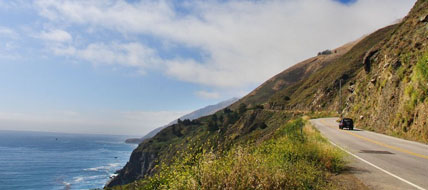You have no items in your cart. Want to get some nice things?
Go shoppingMereoni, Lemeki and I lap up the hot sweet tea. Picking on the homemade coconut pancakes we sit cross-legged in the kitchen of their tin shack silently wondering where the taxi is. There’s not a lot else we can do but wonder with no telephone, no mobile, no PC. We are waiting for the taxi to take us from Nadi – Fiji’s capital – to Lemeki’s childhood home, Vatukacevaceva, and my new home for the next three days.
Lemeki is wearing a Bob Marley t-shirt splashed with the late Third World superstar’s thoughts on slavery and black emancipation. “Why don’t you want to stay in a hotel?” Lemeki asks me between yawns. When I say I am interested in his wife’s scheme to place non-Fijians in traditional villages he continues yawning.
Lemeki says Timi will be there any minute. He’s sure his friend is just recovering from last night’s kava session. I am also feeling the after-effects of Fiji’s other national drink. After taking two slurps of the tree bark derivative I sank into meltdown whilst my hosts continued draining their coconut shells dry. Swerving into the shack’s one other room I fell into a 13 hour sleep on a shabby mattress under a corrugated iron sky starred with warring bugs and a constellation of flying lizards.
Timi’s engines bluster through the silence. We cram into the tiny taxi as Mereoni begins to direct in the blunt, flat tones of her native language. Lemeki and Timi both start laughing about last night’s kava event as they fiddle with the taxi’s CD system. I douse the right side of my body in forty plus sun-cream before opening the car window.
A straight Scalextrix route lines the edge of the road. So there is hope after all for the independent car-less traveller in Fiji. No, Lemeki snorts. That’s the train track for the sugar cane – the government here – give us a railway system! Developed by colonial powers to increase the export of Fiji’s sugar crops to the world these once swarming tracks are now nearly always empty. With the EU’s recent decision to cut sugar subsidies, uncertainities of land ownership, and bureaucratic budget muddles it seems unlikely that Fiji’s sugar crops will ever reign once more.
Perhaps coconuts will be luckier – Fiji has plans for these oval bird’s nests that exist way beyond exotic puddings. Itchy mosquito bite? Rub some coconut oil on it. Sore from sunburn? Slather it on. Looking for a green alternative to petrol? Pour some of it in your car’s engines. Western desires for natural health and renewable energy could one day be met by these husks nestling in tall Pacific palms.
Passing a well-cultivated brace of these trees is the strongest initial indication that you are encountering a break amongst the endless sugar cane plains. You will see road signs in the big cities but the remote villages rely on rocks to spell out that you are nearing, Laselase, Votualalai, Nasautoka. It also serves another purpose repelling the nosy, the tourists. You can’t just wander into a Fijian village uninvited. I had to write to the Chief to get permission for your visit, says Mereoni.
We stop at a small town, its shops blistered with gold strips and sapphire beading. Mereoni looks for a phone to call the village. No reply she says. I think the village phone is not working. The village phone? Yes – they share one telephone in the village. Lemeki cranks up the UB40 as Mereoni scrambles back. I fumble around for my mobile. I jab the buttons – nothing. They know I am coming? Yes, they know you are coming.
Purple mountains shimmer in the heat. Narrowing into a tiny dirt road the taxi struggles uphill, spluttering, stammering. I splash on more sun-cream -should reapply every three hours says the bottle. The exhausted car summons up some energy scowling up a hill. “Oh my god!” We all turn round to face Mereoni. “I’m wearing trousers,” she says. We stop and she fishes around in my bag for a skirt. After changing the taxi splutters alongside a trail of blue and pink shacks and etched out in pale grey rocks I can just make out, Vatukacevaceva. Before the car has a chance to stop ten – perhaps 20 – Fijians with smiles as broad and open as the sun chant welcome, welcome. Welcome.

About Nicolette Loizou
Nicolette Loizou has been published by Smoke and came runner-up in a story competition organized by Juke Box Jury. She has also researched two Rough Guides and written for the travel section of the South China Morning Post.




